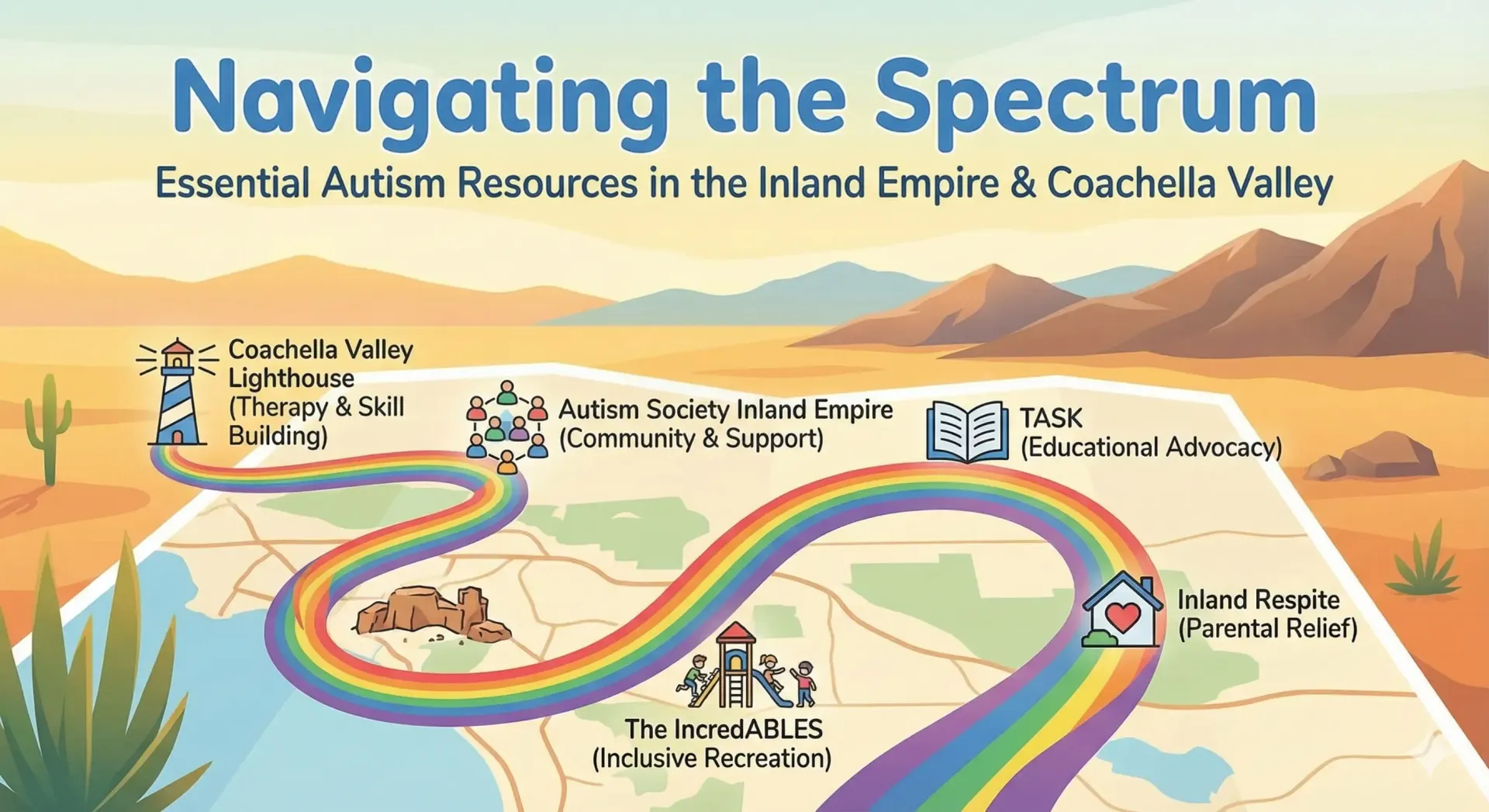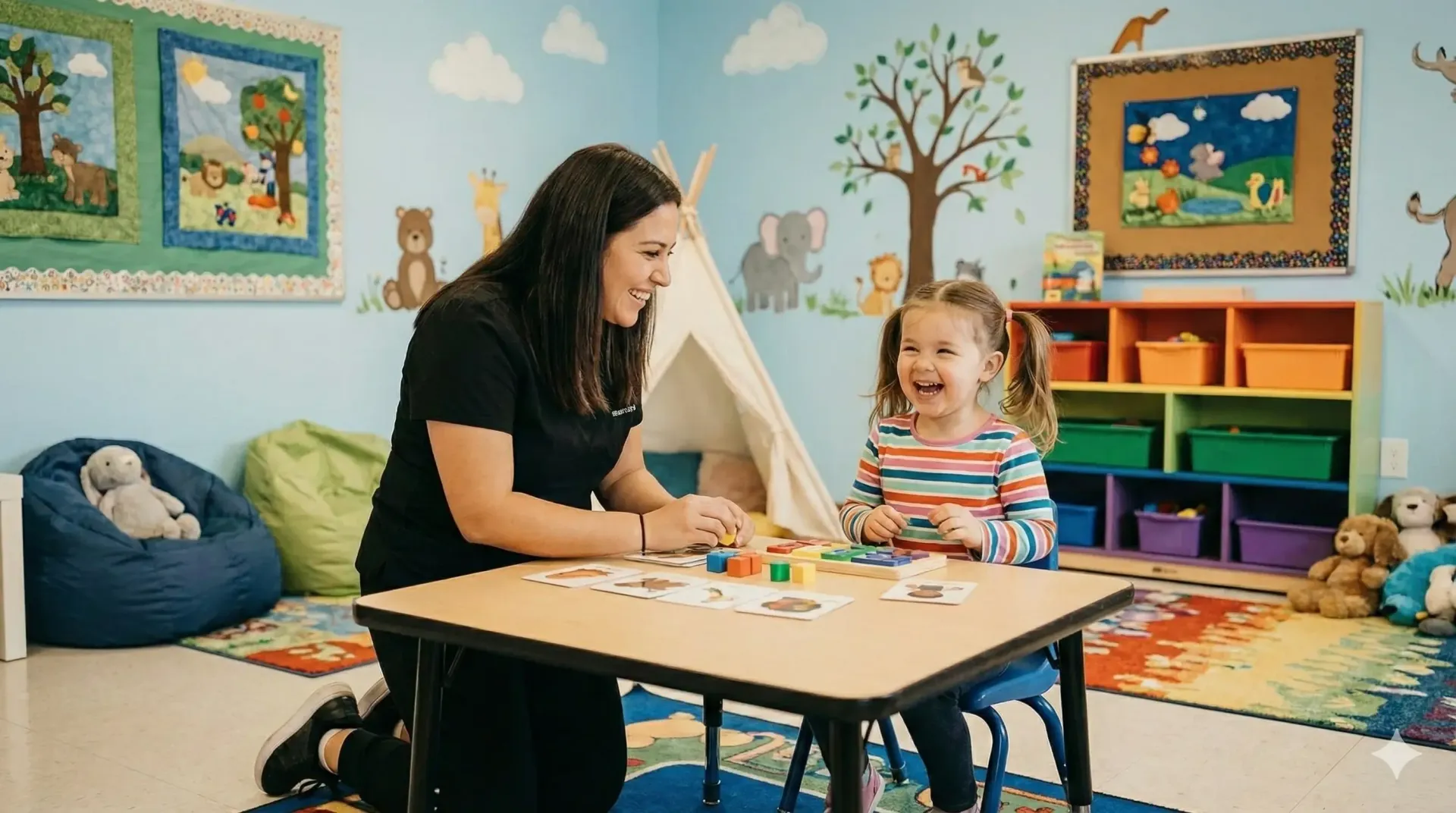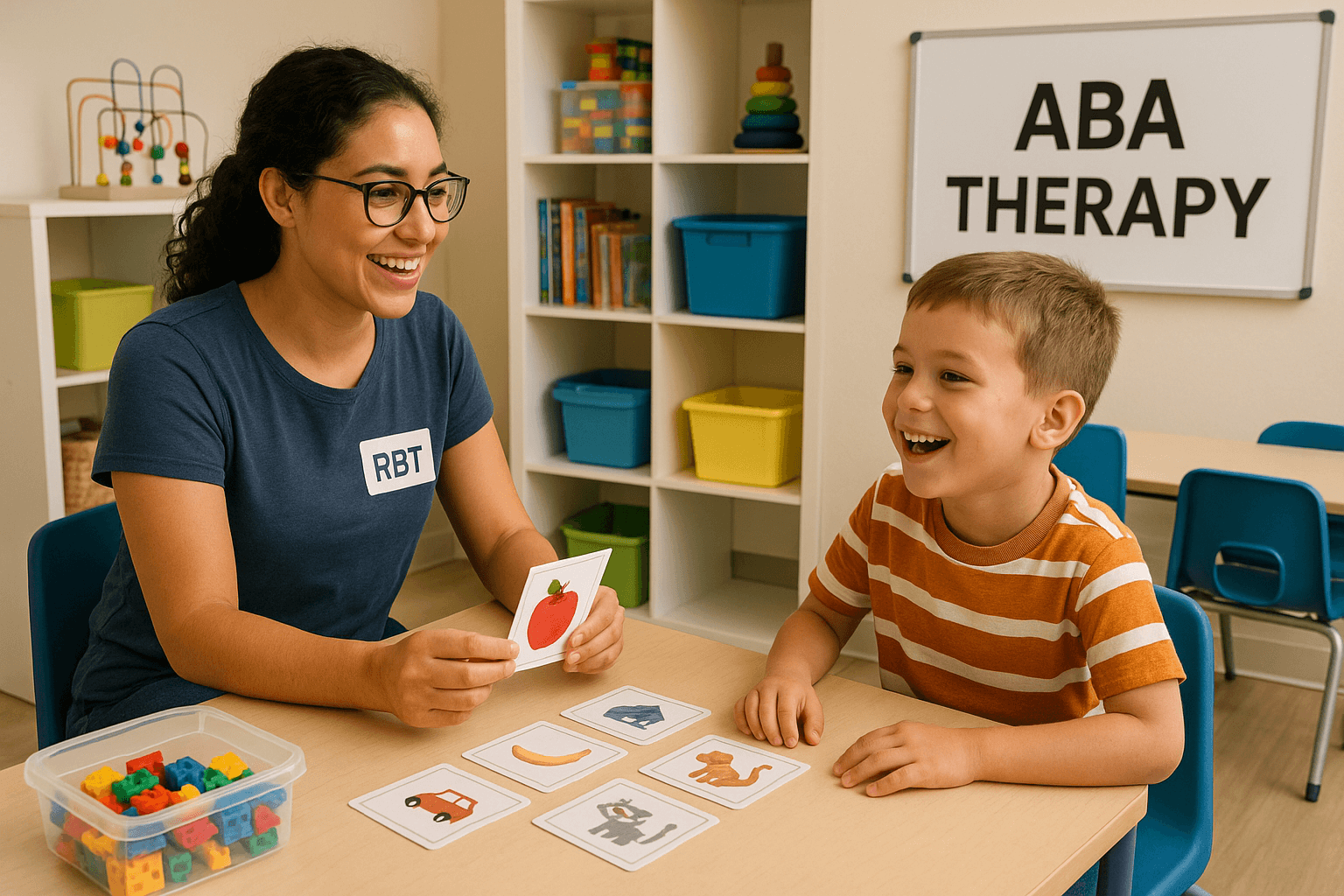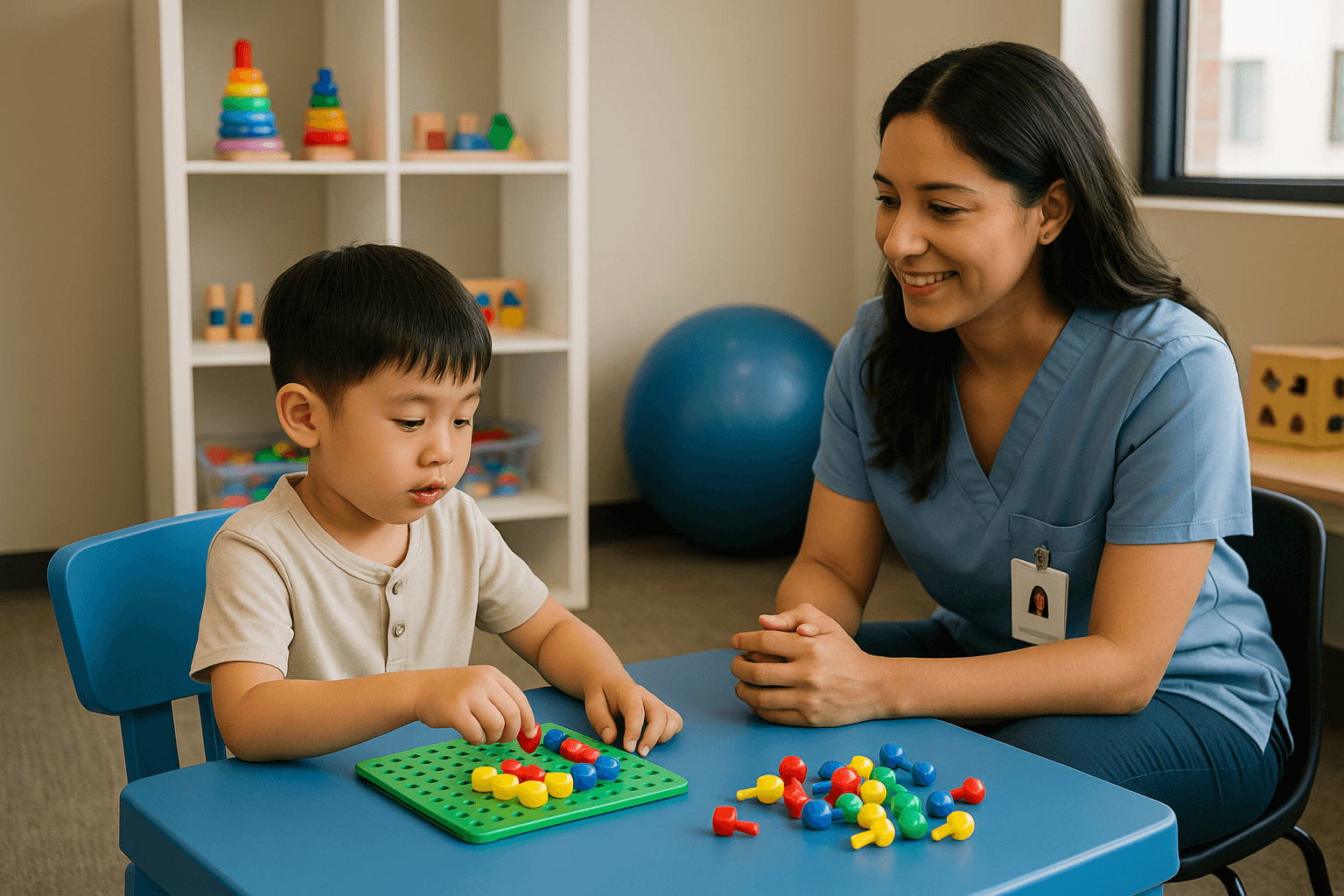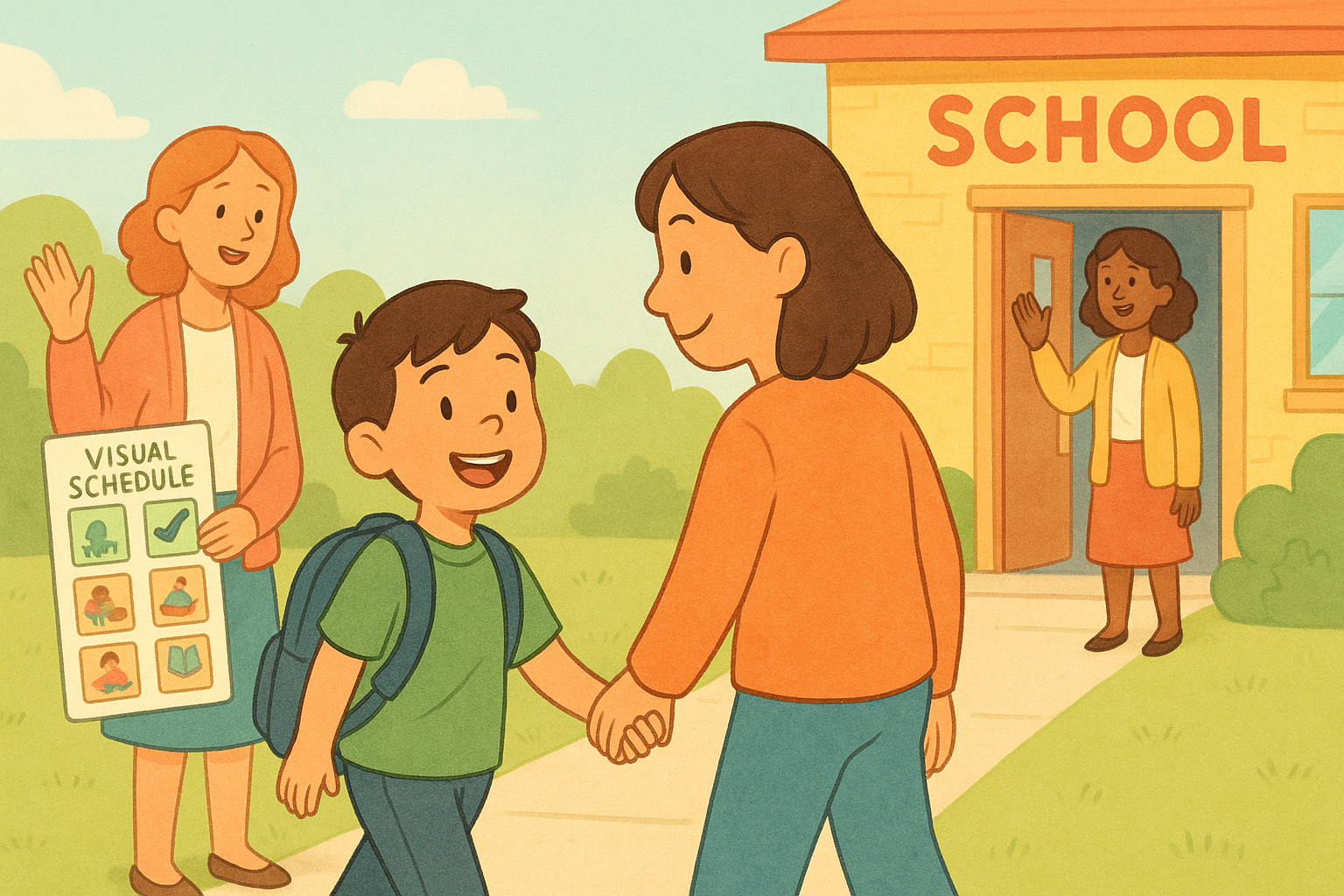The Role of Play in ABA Therapy: Making Therapy Fun
Applied Behavior Analysis (ABA) therapy is a highly effective approach for helping children with autism spectrum disorder (ASD) develop essential life skills. While traditional methods have their place, there's increasing recognition of the power of play in making ABA therapy more engaging and effective. This blog post explores how play transforms ABA therapy, making learning fun and beneficial.
Why Play is Essential in ABA Therapy
Play is not just entertainment; it's a fundamental way children learn and explore the world. In
ABA therapy, integrating play allows therapists to reinforce positive behaviors, improve social skills, and enhance communication in a natural, enjoyable manner. By using interactive games, pretend play, and structured activities, therapists can make learning fun and motivate children to participate willingly.
Benefits of Play-Based ABA Therapy
- Encourages Communication Development: Play-based activities like storytelling, role-playing, and turn-taking games promote language development. Children learn to express themselves verbally and non-verbally in a fun environment.
- Builds Social Skills: Games and group activities help children learn to share, cooperate, and take turns, fostering positive social interactions. Play provides a safe space to practice social cues and build friendships.
- Increases Engagement and Motivation: When therapy feels like play, children are more likely to actively participate and retain new skills. Play keeps sessions dynamic and reduces resistance to learning.
- Reinforces Positive Behavior: Using play as a reward system encourages children to repeat positive actions. Engaging in enjoyable activities after demonstrating desired behaviors reinforces those behaviors.
- Enhances Cognitive Development: Puzzles, memory games, and sequencing tasks improve problem-solving abilities, decision-making skills, and attention span in a playful way.
Types of Play Used in ABA Therapy
ABA therapists incorporate various types of play to achieve different goals:
- Structured Play: Planned activities with clear objectives to teach specific skills.
- Functional Play: Activities that help children understand how objects work in real-life situations.
- Social Play: Encourages peer interaction and collaboration.
- Free Play with Guided Support: Allows children to explore their interests with gentle guidance from therapists.
Incorporating Play in Different Settings
Play-based ABA therapy can be implemented in various settings:
- Home-Based ABA Therapy: Play techniques can be integrated into daily routines, making it easier for children to practice new skills with caregivers.
- School-Based ABA Therapy: Play activities help children interact with peers, follow classroom routines, and participate in group learning.
- Center-Based ABA Programs: Centers offer structured play sessions and interactive learning activities tailored to each child's needs.
- ABA Home Therapy in Greensboro, NC: Integration of play into ABA services transforms sessions into engaging, enjoyable experiences that promote learning in specific locations.
Conclusion
Play is a powerful tool that transforms ABA therapy for children with ASD. By making learning fun and engaging, play-based approaches help children develop essential skills in communication, social interaction, and cognitive abilities. Whether it’s home-based, school-based, or center-based, play-based ABA therapy fosters meaningful growth and progress.
To learn more about how CV Lighthouse utilizes play-based ABA therapy to support children with ASD,
contact us today for a consultation!
